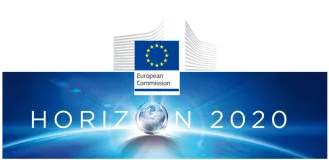EMBRACED
Relevant project information
Dates
Project website
Role of CIRCE
Grant agreement number
Funded by

Description and objectives
One of the important contributors to the organic fraction of Municipal Solid Waste (MSW) is the waste Absorbent Hygienic Products (AHPs), which are currently considered as a non-recyclable fraction of MSW, and are destined for landfill or incineration, which has aroused great environmental awareness.
In fact, every year 900,000 tons of AHP are incinerated or end up in landfills in Italy alone, 8,500,000 tons in Europe, and about 30,000,000 tons in the world.
AHPs are composed of a mixture of natural fibers (cellulose) and polymers (PP/PE and superabsorbent polymers), valuable materials that today do not have an appropriate valorization.
In the EMBRACED project, one of the first of its kind, an integrated biorefinery will be established in order to valorize in a leading scenario the three different fractions of AHP waste, towards the production of bioproducts of commercial interest.
This innovative biorefinery model will involve the main actors of the value chain, from AHP consumers and the local population, to waste managers and logistics companies, bioprocess or end-product developers.
With a view to a circular economy, all fractions obtained from AHP processing will be reused through valorization into final products, while the organic fraction of AHP (cellulose) will be converted and valorized in two parallel chains.
Value proposition
The EMBRACED project aims to demonstrate, in an industrial environment, a replicable, circular, economically viable and environmentally sustainable model of an integrated biorefinery.
It will be based on the valorization of the cellulosic fraction of waste Absorbent Hygienic Products (AHPs) to produce building blocks, polymers and fertilizers.
The refinery model will be implemented following a cascade approach, where all process fractions will be valorized to obtain fully competitive commercial end products with their respective fossil-based competences, or other related biomass-based products.
All this in terms of cost, quality and sustainability. Moreover, the biorefinery model will be carried out following the principles of circular economy, narrowing the cycle of raw materials and minimizing the use of resources, through the establishment of cooperation models among all stakeholders involved.
CIRCE will be in charge of the energy efficiency study in the biorefinery to achieve the principles of circular economy and environmental sustainability.
Specifically, CIRCE will apply an integrated methodology based on Pinch Analysis in conjunction with model simulation with Aspen Plus, to identify measures to reduce primary energy consumption. In addition, CIRCE will develop a specific methodology to identify measures to promote consumer acceptance of bio-based products, including green public procurement.
This analysis contemplates the design, management, testing and processing of survey data (online and in-person) with a broad sample and different types of consumers.
Project partners
Fater, Legambiente, Novamont, Contarina, Fraunhofer-Gesellschaft, CIRCE, Edizioni Ambiente, TerraCycle, P&G, Saponia, Fertinagro, Wittenburg.


